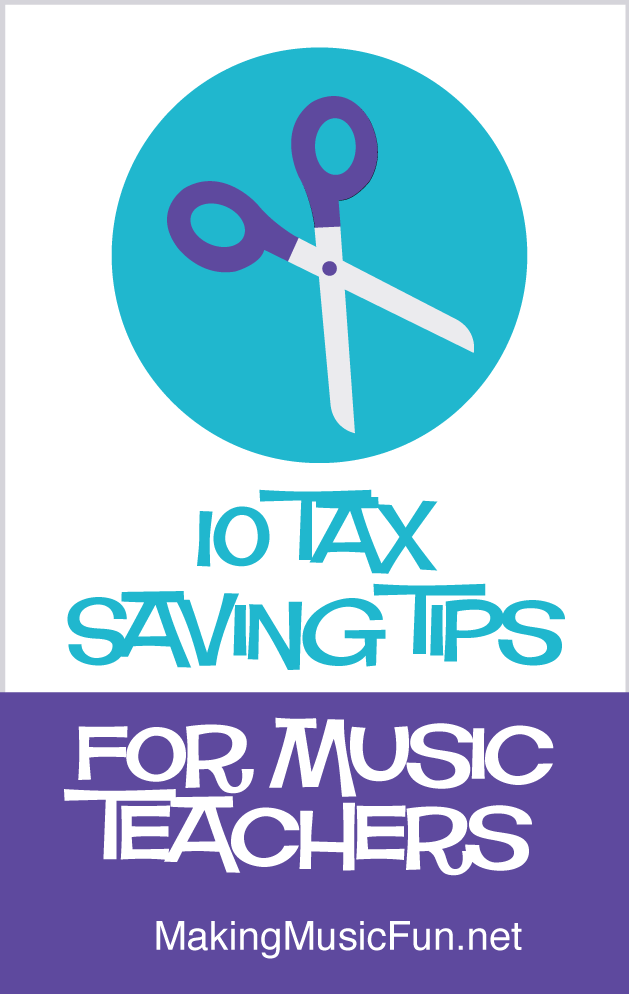10 Tax Saving Tips for Private Music Teachers
from the Private Lesson Teacher Index

Good income tax record keeping can be just as important a goal as growing or maintaining your private lesson studio. This guide will help find deductions that you may have overlooked in the past, and help you keep a little more of what you work so hard to get.
1) Record Your Mileage
Do you travel to and from private music students homes? All this traveling can add up to big savings at tax time, so keep a pocket calendar in your car. Every time you make a trip to a students home, pull the calendar out and record the mileage.
2) Music Books
Keep your receipts for the music books you buy for yourself. These resources are helping you to grow as a musician, and increasing your skill as a teacher.
3) CD's and DVD's
Keep your receipt for CD's and DVD's you buy for yourself as well. These resources are helping you to grow as a musician, and increasing your skill as a teacher. Your use of these resources during a music lesson is further justification for their deduction.
4) Concert Tickets
Did you go see a concert last year? Find that receipt. It's deductible too.
5) Musical Instruments
This might be a no brainer. Save your receipts for big purchases like a piano or a violin. Deducting these purchases on your tax form can make a dramatic difference on your tax bill. Did you also know that you can deduct the instrument you already own? Yep, it's true. Just figure out how much it's worth as a used instrument today, and depreciate its value.
6) Home Studio
Do you have a room set aside just for teaching music lessons? Figure out the square footage of the space, and take the home office deduction.
7) Section 179
Section 179 of the tax code enables you to deduct, in the year of purchase, the full cost of certain items that have a useful life of more than one year. In other words, items that once had to be depreciated over several years can now be deducted all at once. Qualifying items must be personal property such as musical instruments, business vehicles and equipment, or software. Ask your tax accountant if Section 179 is best for you.
8) Quarterly Payments
Quarterly payments are due each April 15, June 15, September 15 and January 15. Taxpayers are not required by law to make these payments. However, there are substantial penalties for underpayment.
9) Health Insurance
This is an easy one too. If you are a sole proprietor, your health insurance premiums are fully deductible. Did you also know that if you make yourself an employee of your music lesson business, can you deduct health insurance for yourself and your family? True again. You can also deduct deductibles, co-payments and prescriptions.
10) Put Your Kids to Work
You may already be paying your kids for helping you with your business. Now you can make it count at tax time as well. Children are not taxed on the first $5,450 of earned income because it's sheltered by the standard deduction. Just figure out what type of legitimate work can be completed by your child, and 'pay' them for it. If you combine this idea with others, like gifting appreciated items to your children for them to sell, or gifting them business property and leasing it back from them, you can find deductions that can be quite substantial. Ask your tax account about how these opportunities might work for you.For more information on small business taxes, visit the IRS' Small Business and Self-employed One-Stop Resource.